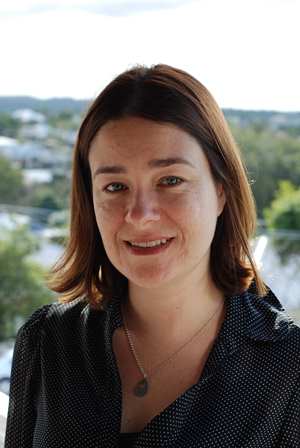The biomedicalisation of smoking: implications for lay understandings of tobacco dependence and its treatment
Presenter
Kylie Morphett - PhD Thesis Review milestone presentation
Advisors
Dr Coral Gartner (Principal Supervisor); Professor Wayne Hall and Dr Adrian Carter (Associate Supervisors)
Overview
Biomedical models of cigarette smoking are becoming increasingly prevalent. Neuroscience research has revealed that nicotine use is associated with long lasting changes in the brain, and these findings are being presented in the media and in advertising campaigns for smoking cessation pharmacotherapies. Proponents of a biomedical model of tobacco dependence believe that it will lead to increased treatment seeking, more efficacious treatments, and a reduction in stigma and feelings of shame. However, concerns have been raised that biomedical models of nicotine addiction could reduce individual responsibility for smoking, increase stigma, and undermine individuals’ beliefs in their ability to stop smoking or their willingness to try. While the potential impacts of biomedical models of addiction on individual agency, responsibility for addiction, and treatment choices have been discussed and debated in the academic literature, the extent to which members of the public endorse a biomedical model of tobacco dependence, and have incorporated it into their everyday understandings of their smoking, is unknown.
This research examined the effect of biomedical discourses of smoking, including the influential “brain disease model of addiction”, on the beliefs of Australians (including daily smokers) about tobacco dependence and its treatment. A mixed methods approach was used in order to ascertain the extent to which biomedical understandings of smoking have infiltrated lay discourse on smoking and quitting; how Australian smokers understand nicotine addiction and the role of the brain; and how exposure to the brain disease model of addiction may influence smokers’ attitudes and behaviours related to their smoking.
Qualitative research with 55 members of the general public revealed that while cessation medications were frequently described as a helpful means to quit, the role of willpower, choice, and motivation were also seen as central. A separate set of interviews with 29 daily smokers revealed very positive attitudes to quitting unassisted. Cessation medications were not perceived as magic bullets, and again the role of willpower and personal responsibility were emphasised. While many smokers were aware that smoking affected their brain, few agreed that it was a brain disease. Participants expressed concerns that biomedical understandings of smoking would increase the stigma of smoking, lead to a diminishment in personal responsibility, and deter treatment seeking.
These qualitative results informed the development of a quantitative survey that was completed by over 1536 Australian smokers. An analysis of survey results suggest that endorsement of the brain disease label of addiction was not associated with the use of medications for smoking cessation.
While a chronic disease model that emphasises the role of neurochemistry in tobacco dependence is becoming more dominant in academic discourse on smoking, this explanation of smoking was not accepted by most Australian smokers. Concerns about the negative consequences of describing smoking in the way, and wariness about the motives behind public health anti-smoking campaigns, were reasons behind this rejection. It was also clear that a biomedical discourse of smoking did not encompass the complexity of addiction as an everyday, lived experience. This study points to the importance of including lay perspectives in debates about the biomedicalisation of addiction.
Brief Bio
Kylie Morphett is a final year PhD student in the School of Public Health and the School of Medicine. Kylie has Honours Degrees in Arts (University of Newcastle) and Psychology (University of Adelaide). She worked in a number of health related roles in the university and non-profit sector before commencing her PhD at UQ in 2012.

